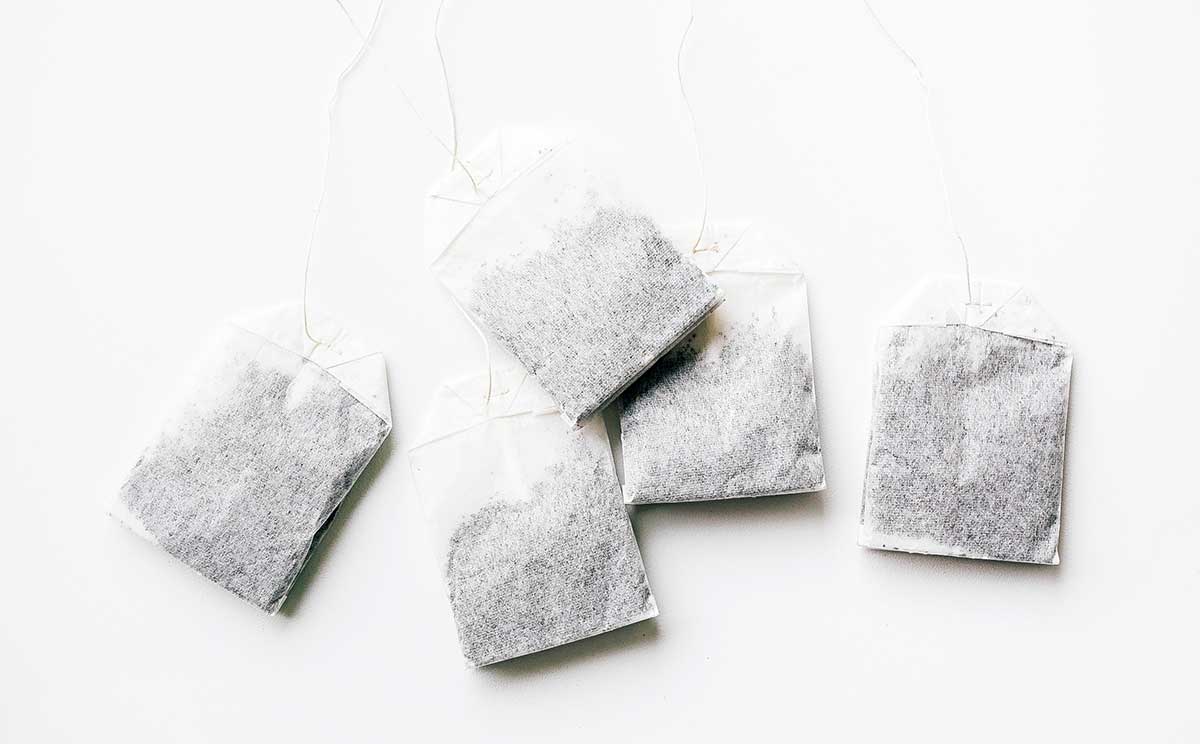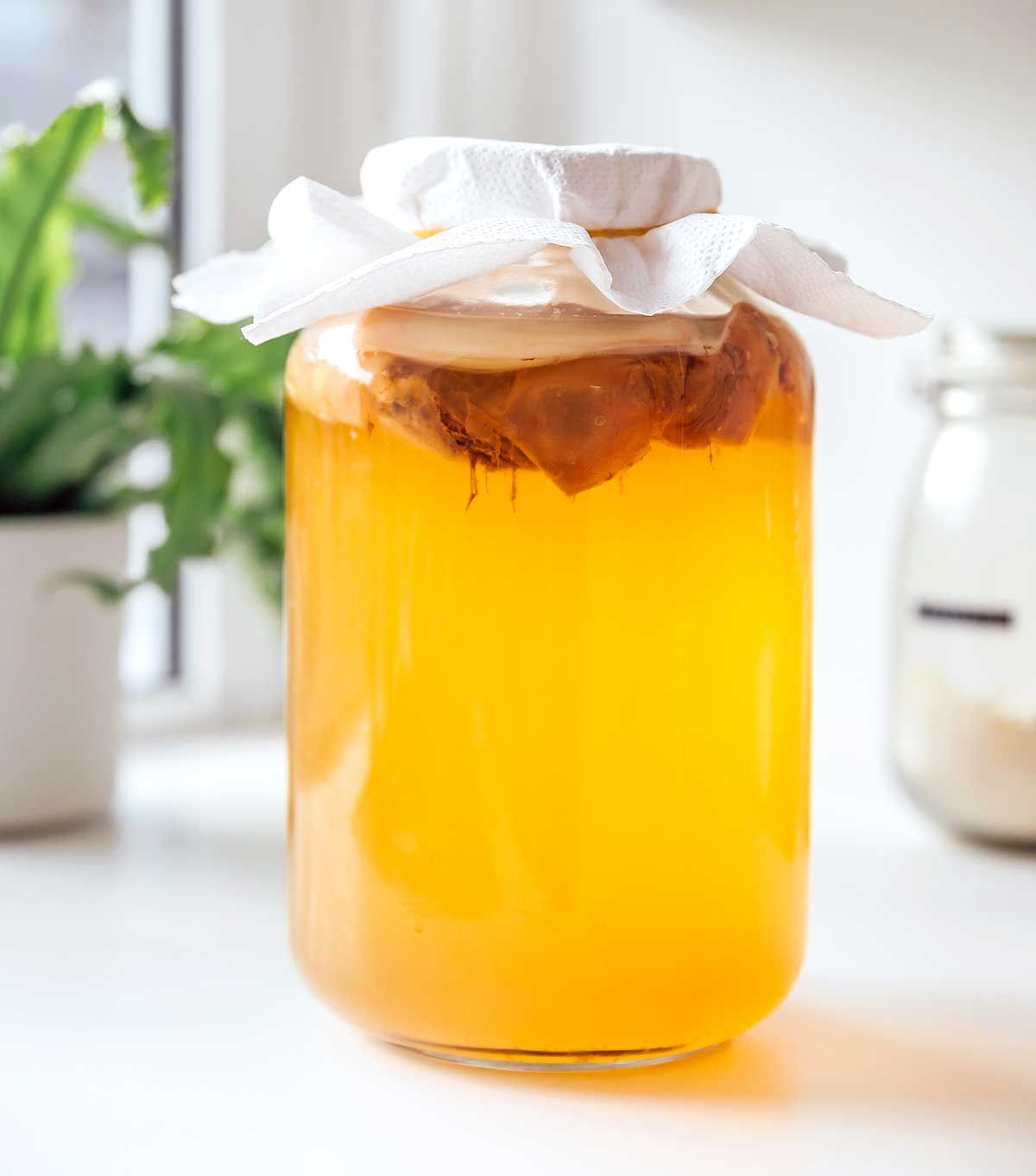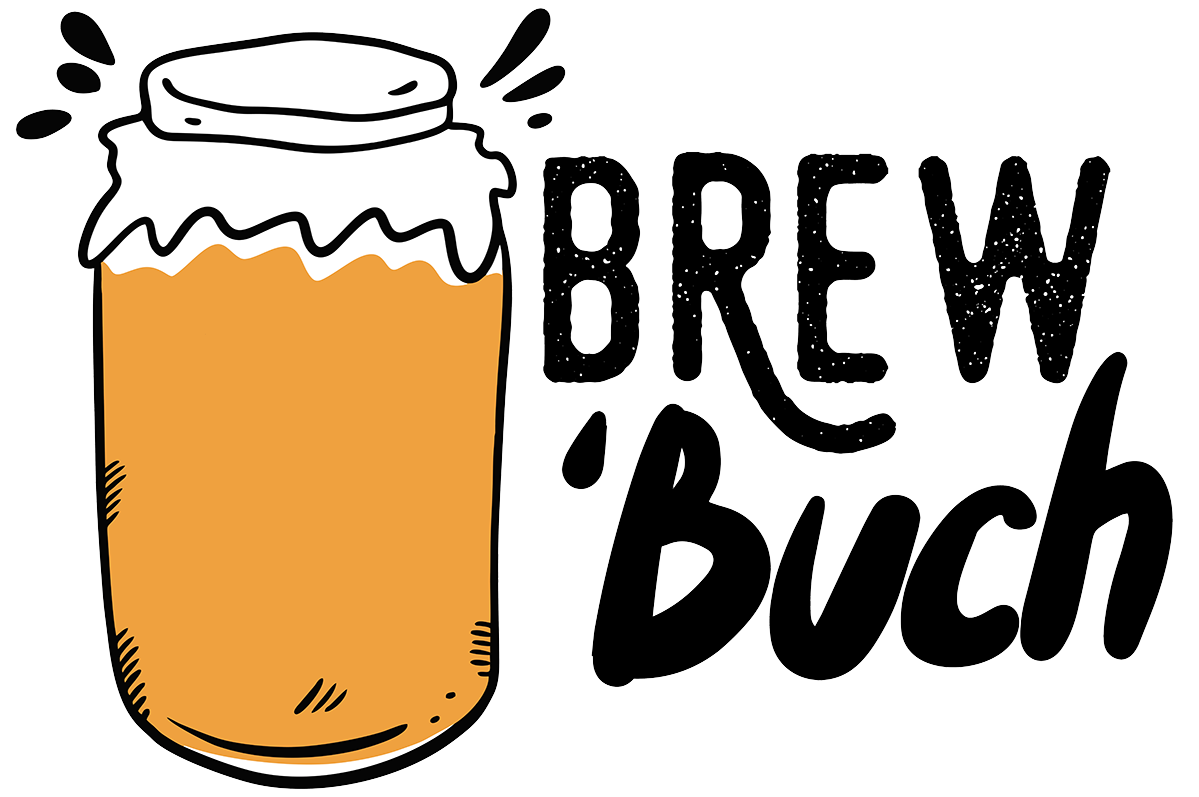Does kombucha have caffeine? And can you make caffeine free kombucha? Answering it all here!

As a kombucha brewing expert, I’m often asked is kombucha is caffeinated? And do store-bought kombucha brands contain caffeine? And what about homemade kombucha, does it have caffeine? Can you brew caffeine-free kombucha? Or reduced-caffeine kombucha?
Yes, friends, all kombucha contains caffeine! And all homemade kombucha has caffeine. But just like the sugar and alcohol content of kombucha, the caffeine levels depend on the fermentation.
Despite being touted as a health elixir, kombucha contains a few of our favorite vices: sugar, alcohol, and caffeine!
Kombucha is a fermentation in which bacteria and yeast (known as the SCOBY) eat up sweet tea, transforming it into a probiotic packed fizzy drink. So while the tea may begin with 25 mg caffeine (in a cup), the finished kombucha will have less, about 10 to 15 mg. For reference, a cup of coffee contains about 40 mg.
Why is there caffeine in kombucha?
The main ingredient in kombucha is tea leaves from the tea plant, Camellia sinensis. Tea is a natural source of caffeine, meaning kombucha also contains caffeine.
While traditional kombucha has about 10mg per cup, there are extra caffeinated kombucha products on the market (like Brew Dr. Uplift) that have up to 90mg per cup!
Yes, GT’s kombucha contains about 4 to 8mg of caffeine per 1 cup serving.
Yes, Health-Ade kombucha contains about 8 to 15 mg of caffeine per serving.

How to make kombucha with less caffeine
After fermentation, the caffeine content in the kombucha is less because the bacteria and yeast feed on it. Here are a few ideas for how to make kombucha with even further reduced caffeine content.
Reduce the caffeine in your initial tea: You can reduce the caffeine content by opting for lower caffeinated teas. If your fermentations begin to lose their strength (i.e. taking longer to ferment, not becoming acidic), make a batch of kombucha using strong, caffeinated tea to bring the SCOBY back to good health. Discard that batch (or give to a caffeine-loving friend), then continue brewing with your lower caffeinated teas (more on best tea for kombucha here).
- Use decaffeinated tea, aiming for a high quality tea to ensure the SCOBY remains healthy. Rooibos and hibiscus are both great choices.
- Use lower caffeinated teas, like white or green tea, which are lesser oxidized versions of black tea.
Remove the caffeine: You can also easily reduce the caffeine content of black tea.
- Let caffeinated tea bags steep in boiling water for 30 seconds. This will pull out a lot of the caffeine, and you can then use the tea bags to make your kombucha.
- Let the fermentation run longer, allowing more time for the caffeine to be consumed by the SCOBY. Note, this will influence the taste of the kombucha, making it a bit more tart.


My son is violently allergic to caffeine in any shape or form or amount. Is there anything – (ginger perhaps?) that can be used to make Kombucha with zero caffeine content?
Kombucha will almost always have a little caffeine so I would probably have him avoid it. You could check out this list of teas you can use for kombucha though and see if any are caffeine free (maybe hibiscus?)
I’ve been doing 2 parallel batches for a while now. (1 boozy and 1 regular) Tonight I am going to do my first boozy batch using 4 black tea bags and 4 green tea bags to see how I like it. I have always done all black tea so I assume my SCOBY (for the boozy process) is healthy.
Thanks for this!
Hi. I have a 2.5 gallon jar. The scoby gets Huge – 8″ x 8 “… has anyone doubled the batch – added 2 gallons of tea instead of one? Does it work?
You can def double the recipe as long as you also double the amount of starter kombucha! 😀
I am caffeine sensitive so drink very little or no caffeinated drinks. I have always used 4 Caff and 4 D Caff tea bags in my Komucha. I ferment each batch 10 days per fermentation. My Komucha is very good and my Scoby’s seem very healthy.
Speaking of caffeine, I learned something the hard way. If trying to go for increased caffeine (to help treat migraines for example) do not use any highly caffeinated tea containing bergamot because it will kill your SCOBY. I was making lower caffeine ones for normal use by pre-soaking (but was just doing for only 2/3 of the tea; will have to try your method now) and later diluting my completed kombucha further by mixing it with regular squeezed fruit juices to drink …. just so I could remain more sensitive to caffeine for migraine treatment …. and then thought I’d try to shoot for higher caffeine kombucha for migraine treatment with a higher caffeine tea but it contained bergamot and killed my SCOBY! LOL Live ‘n’ Learn! 🙂
Oh, Tammy! How sad! I believe if I killed my SCOBY I would need to have a funeral and burial!
Can I use ginger syrup in place of fresh or ground ginger? Thanks, Helen.
I did! It was delicious. About 1/3 cup in my gallon!
Would it be ok to use decaffeinated black tea?
Yep! Every few batches you may need to use a strong, caffeinated black tea to reinvigorate the SCOBY (if you notice your fermentation going much slower or not tasting strong anymore, just do that).